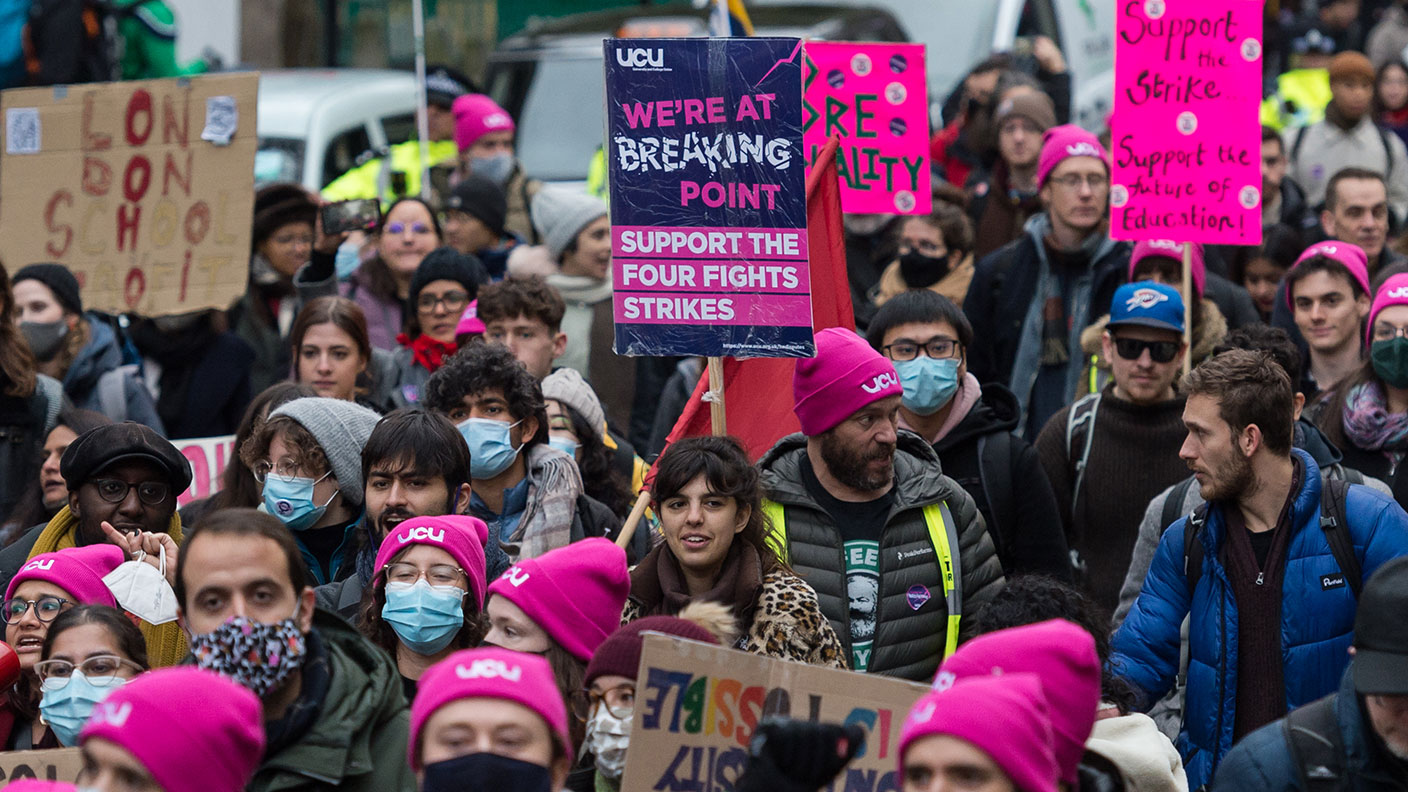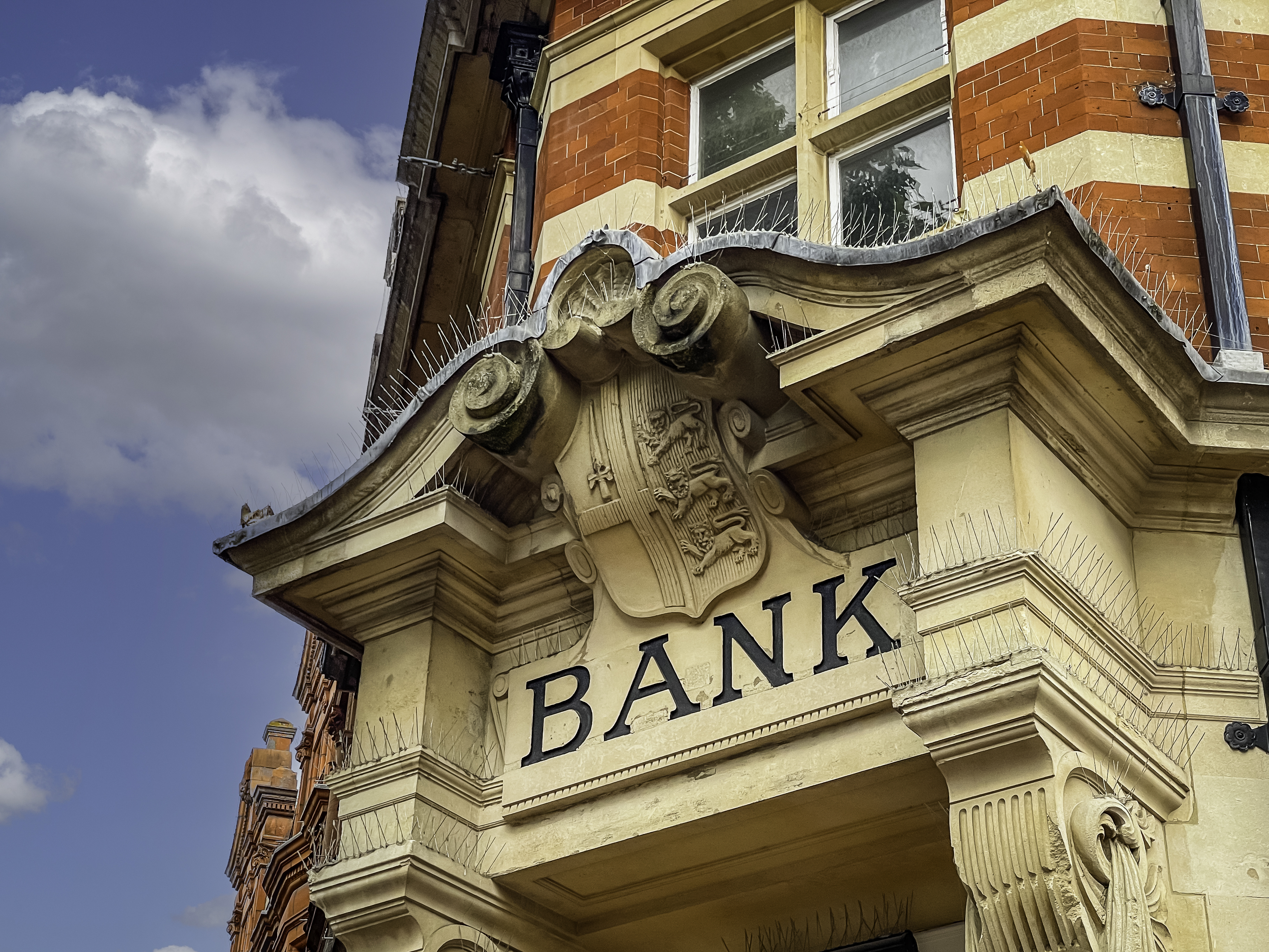A wage-price spiral is stirring in the UK – what does that mean for your money?
The cost of living is rising – and wages aren't keeping up. But with workers having more power than they’ve had in a long time, they're demanding more – and they may well get it. John Stepek explains what's going on.


Get the latest financial news, insights and expert analysis from our award-winning MoneyWeek team, to help you understand what really matters when it comes to your finances.
You are now subscribed
Your newsletter sign-up was successful
Want to add more newsletters?

Twice daily
MoneyWeek
Get the latest financial news, insights and expert analysis from our award-winning MoneyWeek team, to help you understand what really matters when it comes to your finances.

Four times a week
Look After My Bills
Sign up to our free money-saving newsletter, filled with the latest news and expert advice to help you find the best tips and deals for managing your bills. Start saving today!
I’ve long said that 5% on the consumer price index would make inflation a headline issue in the UK.
Well, the cost of living crisis is certainly filling the headlines right now.
Later today (or maybe even by the time you read this email), the energy regulator will have told us that the price cap on energy bills is going up by about 50%.
MoneyWeek
Subscribe to MoneyWeek today and get your first six magazine issues absolutely FREE

Sign up to Money Morning
Don't miss the latest investment and personal finances news, market analysis, plus money-saving tips with our free twice-daily newsletter
Don't miss the latest investment and personal finances news, market analysis, plus money-saving tips with our free twice-daily newsletter
It’s all quite reminiscent of the 1970s: energy shocks, inflation – and we’re starting to see strike action picking up too.
Inflation will drive more unionisation and strike action – not the other way around
The cost of living is rising. Currently, it’s outpacing wage growth. In other words, if you are the average worker (no one is, but some of us must be close to it), you’re getting paid more than you were last year, and in fact, you’ve probably had a bigger rise than you’ve had in years – but unfortunately your living costs have gone up by more, so your standard of living has in fact declined.
In other words, you’ve taken a pay cut in “real” terms.
The thing is, right now, the labour market is extraordinarily imbalanced. There are loads of job vacancies, and just not that many people available to fill them. So workers have more power than they’ve had in a long time, plus more motivation to use it.
And that’s what we’re starting to see play out. Baggage handlers and refuelling staff at Heathrow have voted to go on strike during the February half-term holiday. Refuse collectors in Eastbourne have already won a big pay rise after striking last month.
Even the Financial Conduct Authority (FCA) – the UK’s financial regulator – is facing “unrest”, as the FT puts it, after the Unite union “secured the backing of some of the regulator’s 4,000 employees for industrial action if management refused to engage with the trade union” (note though that Unite hasn’t revealed how many FCA staff are actually members of the union).
This isn’t just a UK issue. Over in the US, companies such as Starbucks are seeing increasing attempts to unionise. This is often presented as “grass roots movements” by the socially-conscious “generation whichever one is the current one”. But I’d put it down to simple economics rather than a different type of political consciousness.
As financial historian Russell Napier pointed out in an interview with The Market last July, the direction of causality between unionisation and wage inflation is not at all clearly understood.
“People always say unionisation caused inflation. The statistical evidence suggests that it was the other way around, that inflation caused unionisation. People banded together and joined unions to protect themselves from inflation. When there is no inflation, you don’t need to be in a union. I think we will see more unionisation again.”
If this is indeed the case, then all the people who argue that we can’t have a repeat of the 1970s have got it precisely wrong.
And that’s the thing that worries central banks more than anything else.
Inflation isn’t transitory anymore
Until very recently, central banks had been saying that inflation is “transitory”. It’s a one-off bump higher, created by supply chain disruption which was caused by the big covid shutdown.
We’ve never agreed with that view here at MoneyWeek but we can see why central banks stuck to the line for a while.
That’s because the thing that really freaks central banks out is “inflation expectations”. If people think inflation will be higher in the future, then it creates a self-fulfilling prophecy. Here’s the rough outline of the theory:
“I think inflation will rise, so I ask for higher wages if I’m an employee, or I raise prices if I’m a business to compensate for said expected inflation. If everyone does this, then rising wages beget higher prices which beget higher wages which beget higher prices and so on until no one can remember which day of the week it is and the economy collapses as a result.”
This is mostly nonsense like a lot of macroeconomic theories, in that it’s not about expectations, it’s about reality. The reality right now is that there are fewer people to do jobs, those people are seeing their energy bills rocket, and quite rightly they feel empowered to ask for more to compensate. Meanwhile companies see that business is fine so they feel empowered to pass those costs on.
What can central banks do about this? The reality is that their tools are pretty blunt. If you really want to stop this kind of inflation, you basically need to punch the economy in the face with significantly higher interest rates, so that everything slows down again. However, the desirability and purpose of such actions is questionable. Why would you want to trigger a recession right now?
The ideal solution would in fact be for the state to shift the tax burden away from incomes and onto assets, particularly property (or rather, land). That way workers get a pay rise, and you make some progress towards closing the wealth gap (and more importantly, the house price gap) which is at the heart of most of the current frustration.
But that’s unlikely to happen because income tax is easy to collect and politically non-toxic as long as you can pretend the burden is mostly falling on the “rich” (whereas in reality it’s mostly falling on those in mid-to-late career).
The upshot of all this is that we probably won’t see any significant action to contain wage inflation for quite some time, and so we can expect more of it.
Ah well – so what’s it all mean for investors?
From an investment point of view, in a note a couple of weeks ago, Goldman Sachs noted that FTSE 100 companies tend to outperform small cap stocks as inflation rises.
Why? They reckon it’s down to the FTSE 100 holding more banks and commodity stocks, which are among the few industries to generally benefit from inflation; bigger companies having more pricing power (so they can pass costs along, regardless of wage hikes); and also the fact that the FTSE 100 is full of multinationals (so local inflation doesn’t matter so much).
Another good reason to buy into the FTSE 100 is probably the fact that the UK is still being shunned by investors. According to the latest data from global funds network Calastone, January saw investors suck a record £795m out of UK-focused equity funds.
That was partly driven by the general market malaise, but it’s striking to see Britain still so drastically out of favour despite being both cheap and in many ways, a better bet on a more inflationary world than pretty much any other major developed market I can think of.
So there you go: buy British (or at least, UK-listed), and if you’re an employee - ask for a pay rise.
Get the latest financial news, insights and expert analysis from our award-winning MoneyWeek team, to help you understand what really matters when it comes to your finances.

-
 Should you buy an active ETF?
Should you buy an active ETF?ETFs are often mischaracterised as passive products, but they can be a convenient way to add active management to your portfolio
-
 Power up your pension before 5 April – easy ways to save before the tax year end
Power up your pension before 5 April – easy ways to save before the tax year endWith the end of the tax year looming, pension savers currently have a window to review and maximise what’s going into their retirement funds – we look at how
-
 Nationwide fined £44 million over “inadequate” anti-money laundering systems
Nationwide fined £44 million over “inadequate” anti-money laundering systemsFailings in Nationwide’s financial crime processes between October 2016 to July 2021 meant one criminal was able to deposit £26 million from fraudulent Covid furlough payments in just eight days.
-
 UK wages grow at a record pace
UK wages grow at a record paceThe latest UK wages data will add pressure on the BoE to push interest rates even higher.
-
 Trapped in a time of zombie government
Trapped in a time of zombie governmentIt’s not just companies that are eking out an existence, says Max King. The state is in the twilight zone too.
-
 America is in deep denial over debt
America is in deep denial over debtThe downgrade in America’s credit rating was much criticised by the US government, says Alex Rankine. But was it a long time coming?
-
 UK economy avoids stagnation with surprise growth
UK economy avoids stagnation with surprise growthGross domestic product increased by 0.2% in the second quarter and by 0.5% in June
-
 Bank of England raises interest rates to 5.25%
Bank of England raises interest rates to 5.25%The Bank has hiked rates from 5% to 5.25%, marking the 14th increase in a row. We explain what it means for savers and homeowners - and whether more rate rises are on the horizon
-
 FCA tells banks to speed up savings rate increases
FCA tells banks to speed up savings rate increasesRecord profits and low savings rates spurred the FCA to meet with some of the UK’s top banks.
-
 UK inflation remains at 8.7% ‒ what it means for your money
UK inflation remains at 8.7% ‒ what it means for your moneyInflation was unmoved at 8.7% in the 12 months to May. What does this ‘sticky’ rate of inflation mean for your money?